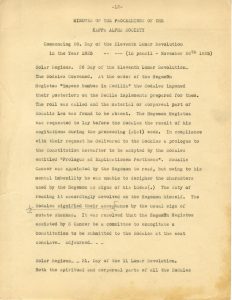Latest implication of Chile’s 13 year drought threatens honey bees
March 3, 2022
Over the past 13 years, Chile has been facing severe droughts. Starting in 2010, there have been occasional dry spells, but climate change has been one of the biggest contributors to Chile’s lengthy and severe drought. According to Reuter graphics, over the past 13 years, rainfall in the central regions of Valparaiso, Santiago, O’Higgins, and Maule was at least 50 percent below the average between 1980-2010.
According to Reuters graphics, the region of Maule hosts more than 2,400 apiaries, resulting in almost 200,00 beehives. Maule also holds the title of the largest producer of apples in which bees pollinate their flowers for the fruit trees to bloom. As of just this past September of 2021, water volumes have been lowered drastically at Maule’s two largest reservoirs: Colhoun and Laguna del Maule. According to Reuters graphics, these reservoirs “provide key water supplies for irrigation and hydroelectric power generation.”
One of the most recent implications of this drought is that honeybees are on a steep decline. Honeybees are a crucial part of Chile’s title as a major fruit exporter. According to Carlos Peralta, a beekeeper in Chile, “if the bees die, we all die… The bee is life,” Bees have to pollinate the plants in the wild for food growers. According to Reuter’s graphics, Honey bees pollinate “avocados, blueberries, raspberries, apples, cherries, and almonds,” which are Chile’s principal export crops. The honey bees “help underpin Chile’s $34 billion food industry, which is among the southern hemisphere’s largest.”
Not only are honey bees on a steep decline as a result of the drought, but pesticides are also being constantly used which ends up hurting the bees. A Food and Agriculture Organization study in 2018 showed Chile’s imports of pesticides grew to 460 percent over the last twenty years. As a result, Chile’s honey exports have dropped.
Carlos Peralta’s brother, Marco, said he has been feeding his bees sugar water and other nutrients instead of nectar. However, this substitute contributes to bees’ weakness that occurs over time. Even more alarmingly, it prevents honeybees from producing nectar. However, beekeepers have to rely on this substitute all year-round instead of just the winter month because of the limited amount of resources caused by the drought.






